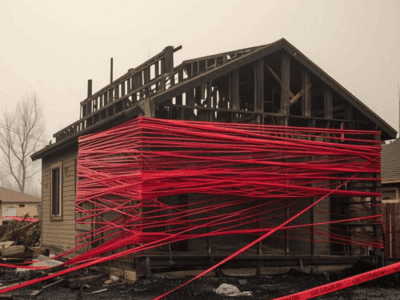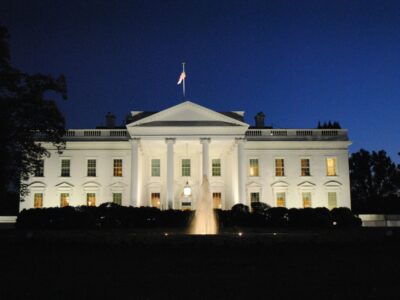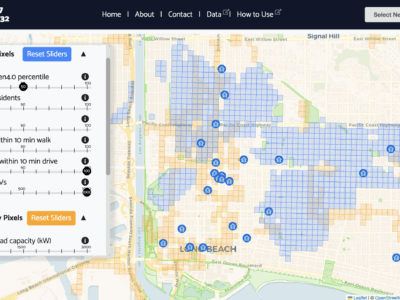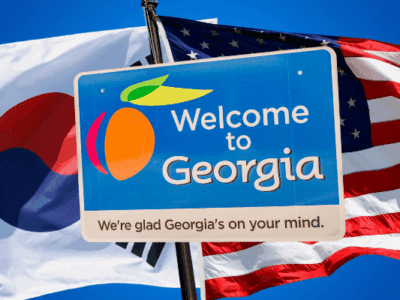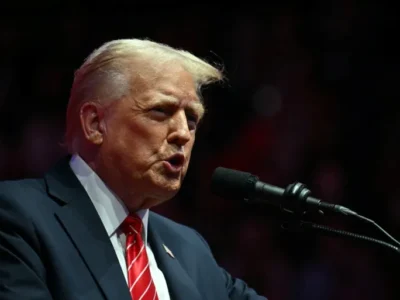One Easy Fix to Prepare for the Next Big Disaster
A little-known drafting wrinkle in current state law is impeding local governments from springing into action after disasters.
Along with my fellow Angelenos, this year I’ve had a front-row seat to the challenges of regional recovery from a major disaster event. The January 2025 Eaton and Palisades wildfires devastated LA-area communities, including two—the Palisades and Altadena—locally renowned for their distinctive neighborhood feel. In the aftermath, the response highlighted challenges at every level of government, from concerns about the adequacy of federal cleanup efforts to loca...
CONTINUE READINGAfter Trump: Recreating Agencies From the Ground Up
A Game Plan for 2029
A new President who wanted a major course-correction away from Trumpism would immediately be faced with a huge problem: Trump will be leaving the apparatus of government in shambles. Much of the government’s top echelon – the most experienced and expert public servants — will have been forced out or will have fled the government voluntarily. The lower ranks will be depleted and demoralized. Rebuilding is a longer-term project, but a new President can’t afford to ...
CONTINUE READINGWhere Should EV Chargers Go?
California set an infrastructure milestone - but how can it reach ambitious goals for EV drivers?
As the California Energy Commission proudly announced this week, the state is now home to over 200,000 publicly accessible electric vehicle chargers. This milestone is worth celebrating, both in absolute and relative terms: California has far more individual public charging ports than gasoline nozzles, and with around 2 million EVs now on the road, around one public port for every ten vehicles. With many EV drivers regularly charging at one of the estimated 800,000 home ...
CONTINUE READINGA Breakthrough From India?
For only the second time in half a century, India's power generation emissions drop, demonstrating that the world is moving on from the United States
Good news is very hard to come by nowadays, so this recent analysis from the Centre for Research on Energy and Clean Air, a Finnish think tank, is particularly welcome: India’s carbon dioxide (CO2) emissions from its power sector fell by 1% year-on-year in the first half of 2025 and by 0.2% over the past 12 months, only the second drop in almost half a century. Other key findings on India for the first six months of 2025 include: The growth in clean-energy cap...
CONTINUE READINGCalifornia and Brazil Advance Joint Climate Action
The new MOU announced at New York Climate Week increased engagement and joint climate leadership ahead of COP30.
This week, California Governor Gavin Newsom led a high-level meeting with Brazil's Environment Secretary Marina Silva to expand the long-running partnerships that exist between the Golden State and the largest country of Latin America. The meeting resulted in a new Memorandum of Understanding (MOU) between both governments to continue to collaborate on climate action. Although this MOU is between a national government and a sub-national government, it highlights the ...
CONTINUE READINGReinventing NEPA
What do we really want NEPA to do? And what’s the best way to do it?
NEPA has been weakened by Congress, the White House, and the Supreme Court. It’s attacked by both the oil renewables industry. Imagining reform legislation from Congress is difficult, but it’s worth imagining, if only as a thought experiment, how we could do better. I would suggest we start by asking what we can expect NEPA to accomplish after fifty years of judicial decisions and agency practice – and whether there are better ways of accomplishing those things...
CONTINUE READINGImmigration Law is Environmental Law
The recent ICE raid on a Hyundai-LG plant in Georgia highlights a problem in our visa system — and our politics.
Three weeks ago, federal and state agents conducted an immigration raid at a multi-billion-dollar Hyundai-LG battery plant under construction in Ellabell, Georgia and detained some 475 workers. About 300 of these workers were South Korean citizens. 14 were from China, Japan, and Indonesia. Another 145 were from Mexico and other Latin American countries. As has become common in such ICE operations, the raid involved masked men and firearms in an aggressive show of forc...
CONTINUE READINGIn His Own Words: The Unitary Executive Explains Science Stuff to Us
Inside the government, the war on science seems to be over, and ignorance has won.
If the whole executive branch is just an extension of the President, government science equates to presidential thinking. The idea of the unitary executive theory, at least as understood by this Administration, is that everyone in the government is the President’s sock puppet. This tends not to work so well when issues like vaccination safety, atmospheric physics, and epidemiology are involved. I wrote earlier this week about the war on science. In the past coup...
CONTINUE READINGNew York Climate Weak
The Drain is a weekly roundup of environmental and climate news from Legal Planet.
Now is the time for courage. Now is not the time to pull punches or pull speakers. We need more speech — not enforced silence. That’s why I'm not a big fan of shutting down campus speakers, even those who might spread climate obstruction. Like Vicki Hollub, the CEO of Occidental Petroleum, who was being interviewed this month as part of Harvard’s Climate Action Week when protestors disrupted the event. I think there is a way to meaningfully interview corpora...
CONTINUE READINGPermitting reform in the Trump Administration
It’s hard to do a deal when one side can’t be trusted to keep their side of the bargain
There’s more chatter about permitting reform again in Congress. I’m supportive of the concept, and thought the deal on the table at the end of the Biden Administration was probably worth doing. So there are now bipartisan efforts to amend NEPA, and also to do a broader permitting reform bill. I’ll leave specific analyses of those pieces of legislation to other posts. Here, I want to highlight a fundamental problem that any deal for permitting reform will fa...
CONTINUE READING



